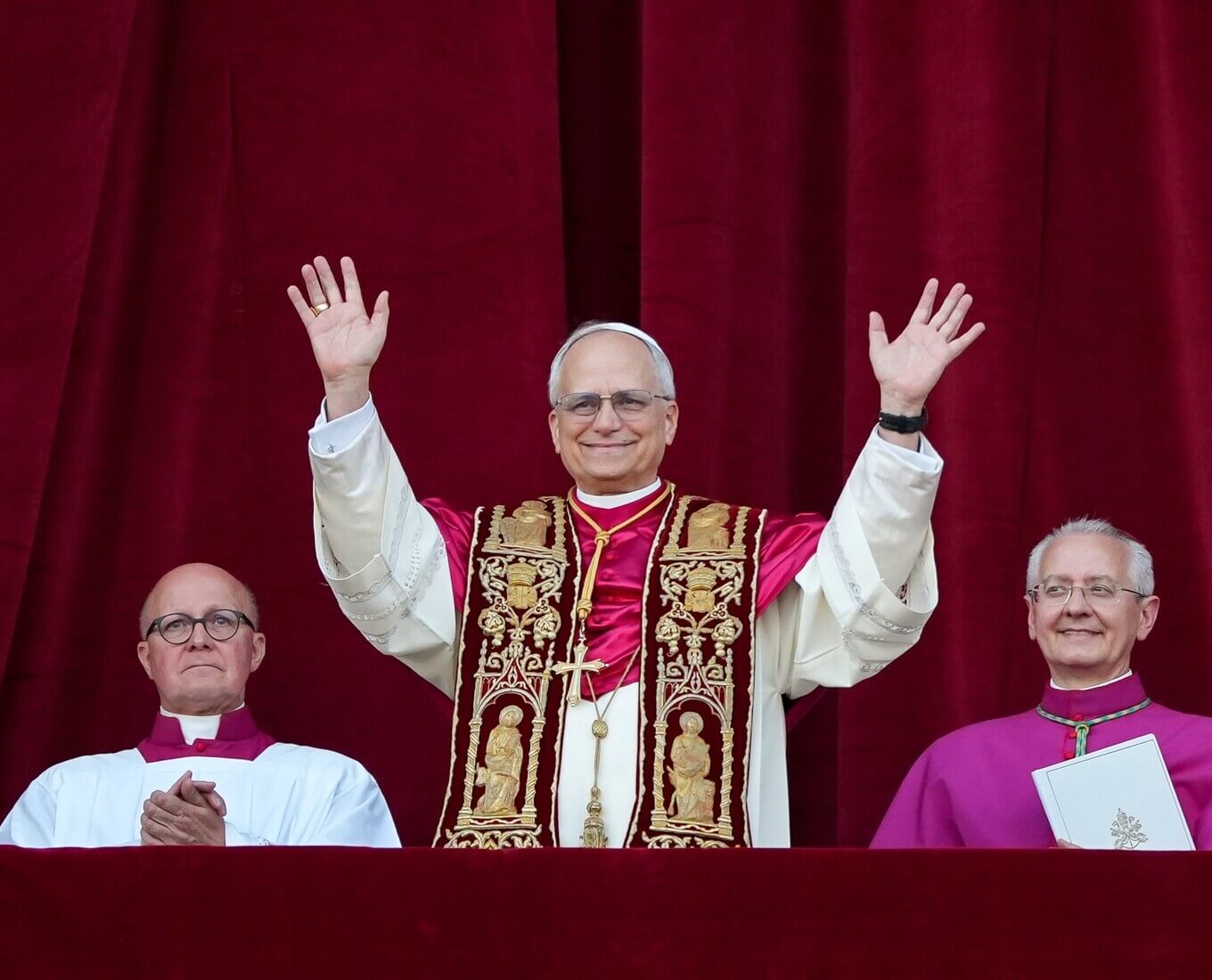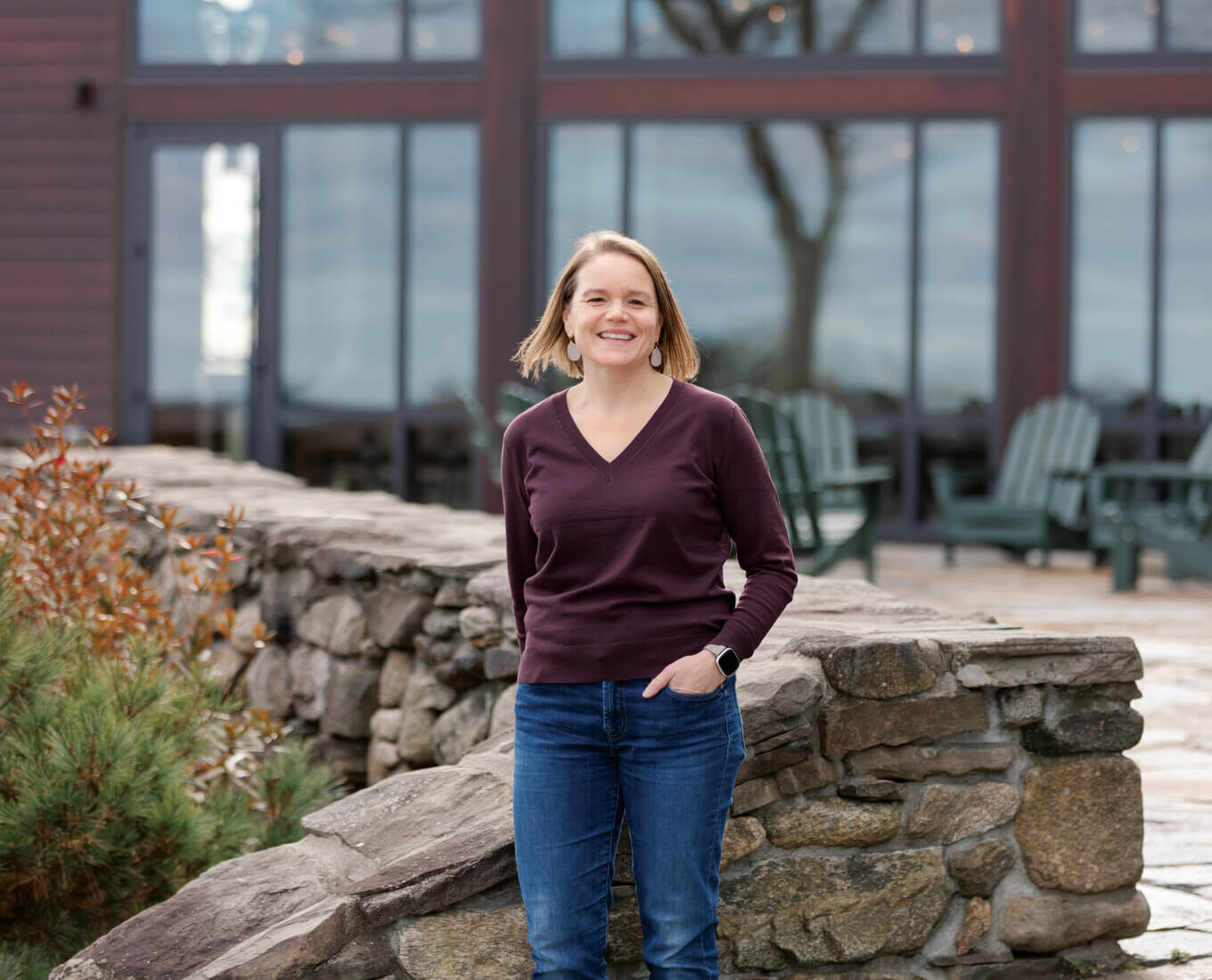recognized with the Goldman Prize, often referred to by those in the environmental movement as the “Nobel Prize for environmentalists.”
Fracking is highly controversial, with proponents advocating what they say are the economic benefits of the process; and opponents deeply concerned about the environmental impact. Slottje says she has been subject to ridicule, followed out to her car in the dark, and threatened with lawsuits. She says the danger is so real she carries mace around like a “security blanket.”
Panel discussion
Slottje, who majored in economics, will return to Holy Cross for the second time this year (the first was for her 25th reunion, an experience she describes as “amazing”) as part of a panel discussion on Sept. 11 at 6:30 p.m. in the Hogan Campus Center Ballroom. The event, titled “Plant a Seed, Change the World: Holy Cross Alumni's Contributions to the Environment,” is designed to learn about and celebrate the environmental and humanitarian work of Holy Cross alumni.
Other alumni who will be taking part include Vivian Daly ’13, inside sales representative for Next Step Living, an energy-efficiency company; Tim Mooney ’92, preserves manager for Francis Carter Preserve & Tillinghast Pond Management Area at the Nature Conservancy; and Emily Sullivan ’14, environmental specialist at Triumvirate Environmental. They will reflect on the impact of their Holy Cross education and on their convictions and careers.
The panel discussion was organized by Estrella Cibreiro Couce, dean for the class of 2018 and professor of Spanish, who assigned the first-year class to read “Unbowed,” by Wangari Maathai, the late environmental activist and winner of the 2004 Nobel Peace Prize.
Care for the earth
A resident of Ithaca, N.Y., Slottje, and her husband, David, also a lawyer, established their own law firm, Community Environmental Defense Council that is specifically designed to provide pro-bono legal representation to municipalities all across New York state that seek to protect a community’s environment. They met while working in the corporate law sector.
Helen, who holds a law degree from the University of Pennsylvania Law School, waded into the fracking battle almost by accident. She attended a community meeting where activists described the risks of fracking — a controversial practice that involves drilling through shale rock using a pressurized mix of water and chemicals to release natural gas. Her outrage turned to resolve.
An education that pays dividends
The education Slottje received at Holy Cross planted the seeds for what would become a social justice movement. She specifically points to three major ways that her education helped her live to the highest intellectual and ethical standards.
“First, I was in the College Honors Program at Holy Cross, and my thesis was about the incompatibility of capitalism and democracy. My focus was on corporations closing and leaving communities in their wake and people jobless; how a company decides to go overseas to save $2 a day and there’s nothing you can do about it. That was my earliest foray on equity and human rights and trying to balance as it were the economy and the human environment — how people live,” she says.
“To this day, I carry around in my head a question that the College posed: ‘How then shall we live?’ That was my ultimate Holy Cross lesson. You don’t have to accept how things are, or do mindless work in your life. You get to choose how to live your life. And that was very empowering.
“Second, I really contribute to a liberal arts education the more you know about any number of things, the more you bring to any one experience. The richness of your experience and basically in all things is enhanced through this very broad sort of knowledge base.
“Third, it sounds trite but you really do more so than learn any particular discipline. What I learned was how to learn, and people continue to be just amazed that I can pick up and learn anything in three days or less. My fight against the fracking industry means I’ve had to fight power plants, learn about the electric market, the regulations of the market, and find entry points for battle. And for most people that would be a pretty daunting exercise. Those skills are obviously invaluable.”
What’s next?
The Goldman Prize, which comes with a $175,000 award, is being used to continue the fight against the fracking industry — with plans for spreading the movement nationally.
“Our hope is that post-Goldman Prize and with surging interest against fracking that we will be able to find a way to keep doing this.”
Related Information
Environmental Champion Slottje ’89 on Crusade to Protect America Against Fracking
Winner of top environmental prize to visit Holy Cross for panel discussion

